Events
| Name | organizer | Where |
|---|---|---|
| MBCC “Doing Business with Mongolia seminar and Christmas Receptiom” Dec 10. 2025 London UK | MBCCI | London UK Goodman LLC |
NEWS
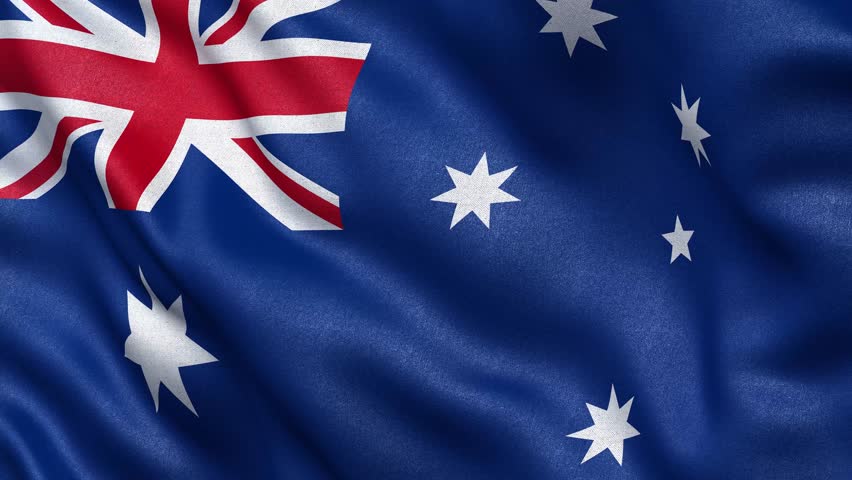
Australian athletes compete in horseback archery world championships in Mongolia www.abc.net.au
Bow and arrow at his side, horseback archer Don Woods would not look out of place in a medieval battlefield — but it is a far cry from his home on a station north of Cooktown, in far north Queensland.
It is also a long way from Ulaanbaatar in Mongolia, where he is competing for the first time at the 2023 International Horse Archery Alliance (IHAA) World Championships, which started this week and run until September 10.
After a series of delays and setbacks arising from the COVID-19 pandemic, this year's IHAA event has attracted more than 50 competitors from 20 countries
Horseback archery is exactly what it sounds like — athletes shoot arrows at targets up to 50 metres away, aiming for precision, speed, good form and a bullseye.
All while riding a 700-odd-kilogram animal, of course.
Practising in a paddock with his horse Betty, Mr Woods said it was an honour to be chosen for the world stage.
"Pretty epic really," he said.
"It's a completely different ball game – Mongolians basically invented the sport; it was a way of life for them in the past.
"It's a matter of going over to basically the best."
Also headed for Mongolia is New South Wales woman Liberty Deaman, who along with her partner Rodney and daughter Amelia, makes up the rest of Australia's world championship team.
The rider, who is based in Tarago, in the Southern Tablelands, said the family had been involved in the sport for 10 years.
"The love and the passion for the sport has grown since then," she said.
Riders champing at the bit for return
The first horseback archery world championships were held in Hungary in 2018.
Initially envisioned as a biennial event, the last world title was scheduled to be held in France but the pandemic brought all events to a halt in 2020.
Ms Deaman said it had taken years to get back to full capacity, with the second world championships finally underway in Mongolia this week.
"It was pretty heartbreaking at the time," she said.
"In Australia, we did wind up having to cease pretty much all competition and training across the country, which was a bit unfortunate.
"[We] lost the opportunity for a number of people to become interested in the sport.
young man holding a bow with quiver of arrows on his back holding the reins of a brown horse
"Which is a big disappointment for our community."
But she was delighted that this year had seen state, national and international competitions charge ahead at full speed.
"Oh, it's fantastic," she said.
"The fact that we're able to start to share this sport with people around the place is really special and really important to me."
Weaving fantasy, thrill and skill
For Mr Woods, the love of archery was born out of his childhood dreams.
"Most little boys go through the Robin Hood stage," he said.
"I got my first bow on my ninth Christmas and I remember the excitement … after that there was no real stopping me!"
Five years ago he combined it with his love of horse riding.
"I haven't looked back since," he said.
Riding his horse Betty along a fenced strip in a paddock, and shooting at three home-made targets, he said the sport is about speed and focus.
"It's certainly not what I'd describe as a slow sport," he said.
"You have to be completely focused on the target.
"There's simply the bow and the target; and of course, the horse underneath you but just sort of hoping they do as you ask."
For Ms Deaman the skill of the sport is a drawcard.
"The complexity of riding a horse without holding onto the reins whilst shooting a bow and arrow at pace is something that a lot of people find quite interesting and exciting," she said.
"It has grounding in many countries … and so there's history that goes back in terms of hunting and sport.
"Horse archery is quite a diverse and dynamic sport."
Widening the target
Other riders are starting to take notice.
Pony Club Australia recognised the discipline two years ago and the organisation's Sally Wiseman said it was giving young riders options beyond show jumping, dressage and cross-country.
"Because it's very tactical with your bow and arrow, it really has diversified the offering for our members," she said.
"It's been very, very popular with the kids."
Far north Queenslander Selena Harding runs clinics for the keen pony clubbers.
She also competes — she and colleague Brian McCarthy have also just taken part in Mongolia's national horseback archery event.
She said the sport was accessible to a whole range of people.
"It doesn't matter what age you are, if you've got the dexterity to be able to hold a bow and arrow," she said.
"It's just really addictive to see how you can get better, how you can get faster.
"It's all about fun."
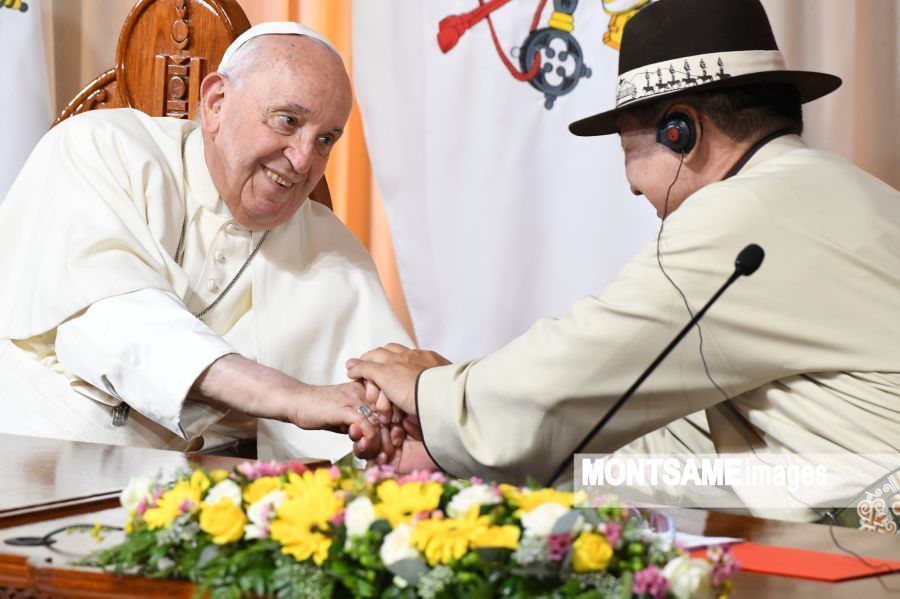
Pope recounts the joy, goodness, humility he saw in Mongolia www.ncronline.org
Pope Francis said he knows people wonder why he traveled close to 6,000 miles to Mongolia to visit a Catholic community of only 1,450 people.
"Because it is precisely there, far from the spotlight, that we often find the signs of the presence of God, who does not look at appearances, but at the heart," he told thousands of people gathered in St. Peter's Square for his weekly general audience Sept. 6.
Following his usual practice of speaking about a trip at the first audience after his return, the pope said that during his Sept. 1-4 stay the country's capital, Ulaanbaatar, he encountered "a humble and joyful church, which is in the heart of God," but one that was excited to find itself at the center of the universal church's attention for a few days.
"I have been to the heart of Asia, and it has done me good," the pope said.
The missionaries who arrived in Mongolia in 1992 "did not go there to proselytize," the pope said. "They went to live like the Mongolian people, to speak their language, the language of the people, to learn the values of that people and to preach the Gospel in a Mongolian style, with Mongolian words."
The universality of the Catholic Church, he said, is not something that "homogenizes" the faith.
"This is catholicity: an embodied universality, which embraces the good where it is found and serves the people with whom it lives," the pope said. "This is how the church lives: bearing witness to the love of Jesus meekly, with life before words, happy with its true riches, which are service to the Lord and to our brothers and sisters."
The Catholic Church recognizes God at work in the world and in other people, he said. Its vision, and its heart, is as expansive as the sky over the Mongolian steppe.
The international group of missionaries working in Mongolia have discovered "the beauty already there," he said. "I, too, was able to discover something of this beauty" by meeting people, listening to their stories and "appreciating their religious quest."
"Mongolia has a great Buddhist tradition, with many people who live their religiosity in a sincere and radical way, in silence, through altruism and mastery of their own passions," the pope said. "Just think of how many hidden seeds of goodness make the garden of the world flourish, while we usually only hear about the sound of falling trees!"
People naturally notice the noisy and scandalous, the pope said, but Christians must try to discern and recognize what is good in others and in the world around them.
"Only in this way, starting from the recognition of what is good, can we build a common future," he said. "Only by valuing others can we help them improve."
Francis said one thing that was very clear was how the Mongolian people "cherish their roots and traditions, respect the elderly and live in harmony with the environment."
"Thinking of the boundless and silent expanses of Mongolia, let us be stirred by the need to extend the confines of our gaze -- please, extend the confines, look wide and high, look and don't fall prisoner to little things," the pope said. That is the only way "to see the good in others and be able to broaden our horizons and also to broaden our hearts to understand and to be close to every people and every civilization."
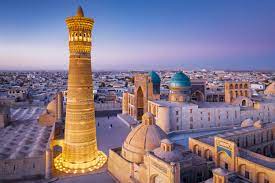
Opening of Embassy of Mongolia in Tashkent discussed www.akipress.com
Mongolia plans to open an embassy in Uzbekistan this year. The issue was discussed at a meeting between Foreign Ministers of the two countries Battsetseg Batmunkh and Bakhtiyor Saidov in March 2023.
After discussing the issue of opening the Embassy of Mongolia in the capital of Uzbekistan, Tashkent, it was decided to hold consultations with the relevant permanent commission of the Parliament of Mongolia.
The concurrent embassy of Mongolia has been located in Astana since 2018, and the concurrent embassy of Uzbekistan has been located in Beijing.
Citizens of Mongolia are able to enter Uzbekistan for 30 days starting from February 1, 2019, and citizens of Uzbekistan from June 3, 2022.

New Holland’s Precision Farming Tech Inspires Mongolian Farming Community www.csrwire.com
Ensada Tractron LLC – Developer of Agribusiness recently lead a tour of a New Holland plant (a brand of CNH Industrial) in Saskatoon, Canada. Though Ensada has organized several international tours for its local farmers in Mongolia in recent years, this particular visit provided a glimpse as to how Mongolia’s agriculture sector can improve sustainable production through precision farming technologies.
More than 40 percent of the country’s grain is grown in the Selenge province. However, crop production has recently been hindered by environmental obstacles, driving a growing interest for agri-tech solutions among the Mongolian farming community.
“In Selenge, farmers face challenges due to limited rainfall and need for an efficient way to conserve water and soil. Seeing farmers here in Canada successfully combat similar issues using New Holland’s tractors, combines, and especially the precision air drills, has been inspiring. These machines enable farmers to practice no-till farming, conserving soil moisture and preventing soil erosion, both of which are critical for our farms back home,” said Batnasan Dorlig, CEO of Shuren Taria LLC, one of the visiting farmers.
At the CNH Industrial facility in Saskatoon, the group was introduced to the cutting-edge production technology behind New Holland’s precision air drills, GPS-guided tractors, soil analysis and crop monitoring technology. Renowned for implementing world-class manufacturing (WCM) processes, the New Holland Saskatoon plant also houses a ground-breaking research and development center.
"New Holland not only understands the needs of farmers but also builds top-notch machinery to fulfil those needs. The production of the air drill was extraordinary - it is truly a masterpiece of technology and engineering. I am excited about the possibility of introducing such effective tools and technologies to Mongolia," Dorlig expressed.
CNH Industrial Logo
CNH INDUSTRIAL
CNH Industrial (NYSE: CNHI / MI: CNHI) is a world-class equipment and services company. Driven by its purpose of Breaking New Ground, which centers on Innovation, Sustainability and Productivity, the Company provides the strategic direction, R&D capabilities, and investments that enable the success of its global and regional Brands. Globally, Case IH and New Holland Agriculture supply 360° agriculture applications from machines to implements and the digital technologies that enhance them; and CASE and New Holland Construction Equipment deliver a full lineup of construction products that make the industry more productive. The Company's regionally focused Brands include: STEYR, for agricultural tractors; Raven, a leader in digital agriculture, precision technology and the development of autonomous systems; Flexi-Coil, specializing in tillage and seeding systems; Miller, manufacturing application equipment; Kongskilde, providing tillage, seeding and hay & forage implements; and Eurocomach, producing a wide range of mini and midi excavators for the construction sector, including electric solutions.
Across a history spanning over two centuries, CNH Industrial has always been a pioneer in its sectors and continues to passionately innovate and drive customer efficiency and success. As a truly global company, CNH Industrial's 40,000+ employees form part of a diverse and inclusive workplace, focused on empowering customers to grow, and build, a better world.
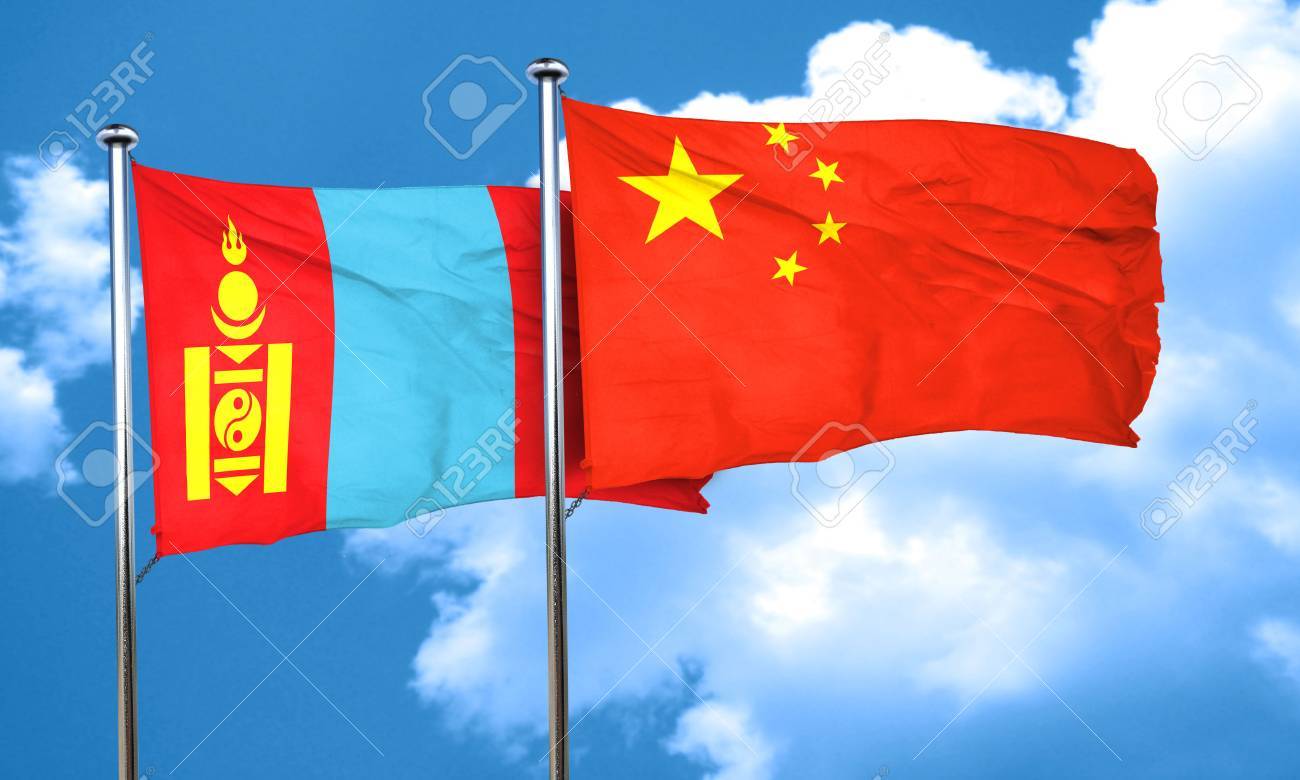
4th China-Mongolia Expo promotes economic cooperation under Belt and Road Initiative www.news.cgtn.com
The fourth China-Mongolia Expo has opened in Hohhot, the capital city of Inner Mongolia. The event fosters economic, cultural and trade exchanges between the two countries, and plays an important role in promoting the Belt and Road Initiative. Yang Shanshan reports.
Featuring beautiful Mongolian music and dance, the China-Mongolia Expo opens its doors this year under the theme "New pattern for opening up, New opportunities for development." Over 3-thousand companies from thirty-five countries and regions are participating in the expo, with over ten trade and investment fairs, forums and seminars taking place until it wraps up Sunday.
GUO ZHOUMING, Deputy Director-General of Department of Commerce, Inner Mongolia "Opening up is the hallmark of contemporary China. The 20th CPC National Congress stressed that China will fully and faithfully promote high-standard opening up, and accelerate efforts to foster a new pattern of development that features positive interplay between domestic and international economic flows. The central government is pursuing greater regional opening up, especially in the central, western, and northeastern regions. This is a brand new historical opportunity for Inner Mongolia's opening up to the outside world."
With Inner Mongolia expected to play a pivotal role in northern China's drive to further open up its economy, helping connect the Belt and Road Initiative to neighboring countries, international investors have flocked to join the fair.
KHAYANGAA BOLORCHULUUN, Mongolian Minister of Food, Agriculture and Light Industry "The trade cooperation between our two countries already reached up to 10-billion US dollars by 2021. By 2027, we're aiming to reach 20-billion US dollars. This is very important to us. The two governments will work together to ease trade and business barriers to promote cooperation between our two countries."
A diverse range of exhibitions are expected over the coming days, spanning green agricultural products, natural resources, clean energy, tourism, technology and more.
YANG SHANSHAN, Hohhot, Inner Mongolia "The fourth China Mongolia Expo aims to enhance trade cooperation between the two countries. It also presents an important platform for economic and trade cooperation and people to people exchanges in the wider Northeast Asia Region. Yang Shanshan, CGTN, Inner Mongolia."
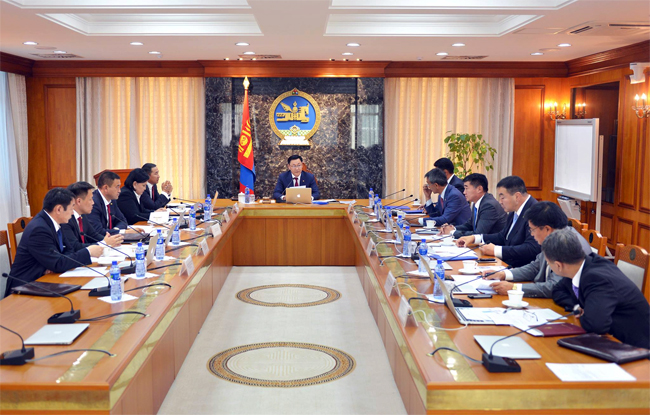
Decisions Made at Cabinet Session www.montsame.mn
At its regular session on September 6, 2023, the Cabinet made the following decisions:
An issue of Khalzan Buregtein Deposit will be resolved on the ground of the local authorities’ proposal
Issues related to reviewing complaints and suggestions submitted by the citizens of Khovd aimag following the visit of the Prime Minister of Mongolia and the special permits for the Khalzan Buregtein Deposit were presented and discussed at today's Cabinet session.
The Minister of Mining and Heavy Industry J. Ganbaatar and the Minister of Environment and Tourism B. Bat-Erdene were tasked to study and resolve the issue pertaining to the special permits for the Khalzan Buregtein Deposit located in the Myangad soum of Khovd aimag grounding on the suggestions of the local authorities in conformity with relevant legislation.
It was instructed to develop the State Policy on rare earth elements and rare metals in conformity with relevant legislation and submit to the Government session.
The Ministry of Mining and Heavy Industry conducted an inspection at the permit site of this deposit. The environmental management plan for 2023 exploration work was approved by the soum governor, but was not approved by the authorized environmental service specified in the legislation. Therefore, its activities have been temporarily suspended since April 29, 2023.
Foreign exchange reserves reach USD 3 billion 933 million
The Deputy Prime Minister and the Minister of Economy and Development of Mongolia Ch. Khurelbaatar presented the implementation of the Government Resolution No. 362 of 2022 "On some measures to undertake towards increasing the state's foreign exchange reserves" and the measures to undertake in the future. In connection with this presentation, related officials were instructed to connect the trading deals made at the Mining Products Exchange with the customs and tax automatic registration system, and register the deals and contracts on mining products made by state and local owned companies only through the exchange in the customs and tax automatic registration system.
As of the end of August 2023, foreign currency reserves reached USD 3 billion 933 million, increasing by 41 percent compared to the end of September 2022. "This ensures the stability of MNT exchange rate," said the Minister of Economy and Development.
Since the beginning of 2023, the total sales of "Erdenes Tavantolgoi" JSC, "Erdenet Industry" state-owned enterprise (SOE), "Mongolrostsvetmet" SOE, and "Darkhan Metallurgical Plant" JSC have amounted USD 2.5 billion.
As of September 4, 2023, a total of 4,966,000 tons of coal was openly traded as part of the open sales of minerals, of which 3,110,000 tons of coal were traded through on-line trading, and 1,856,000 tons of coal were traded through the Mining Products Exchange.
The court will have a document outlining its development policy
After discussing the draft resolution of the State Great Khural on the approval of the "Policy for the Development of Judicial Power," it was decided to support it in principle and forward some suggestions to the legislators.
The Strategic Plan of the Judicial Power was approved by the Resolution of the State Great Khural in 2000, which is still effective. Taking into account the recommendations made in connection with the assessment and conclusion of the implementation of this plan, a proposal on Mongolia's Judicial Power Development Policy goals, objectives, and measures has been developed in harmony with the objectives of the "Vision-2050”, Mongolia's Long-Term Development Policy, and other documents issued by authorized organizations and officials regarding the development and reform of the judicial power.
The Draft Resolution reflects the goals such as the guaranteed enjoyment of citizens’ rights to file in court, improvement of the openness and transparency of operations, ensuring the independence of judges and the independence of the courts, shaping responsible courts, ensuring compliance of the administrative management of the judiciary with modern requirements, continuous development of human resource capacity of the courts, increasing the quality and availability of court services, developing the infrastructure of court services, and creating a stable system suitable for handling cases.
Brief news
· Based on own request, J. Bold was released from his duties and Sukhbold Tumurbaatar was appointed as the Head of the National Police Agency. Colonel T. Sukhbold has been working as the Head of the Criminal Police Department since 2020.
· After discussing an issue of opening the Embassy of Mongolia in Tashkent, the capital of the Republic of Uzbekistan, it was decided to consult with the relevant Standing Committee of the Parliament.

Health and Social Protection Services to be Digitalized www.montsame.mn
Ministers and deputy ministers for communications and digital transition from over 70 countries took part in the Tallin Digital Summit on September 5, 2023. This year's summit was organized under the theme "Strengthening Democracy and Renewing Technological Agenda."
During his working visit to the Republic of Estonia, Minister of Digital Development and Communications N. Uchral met with the management of the Health and Welfare Information Systems Center and got acquainted with its activities.
The Minister was interested in the experience of digitalization of health and social protection services in Estonia and made a proposal to cooperate in introducing them in Mongolia. In particular, he proposed to cooperate in the areas of data-based decision-making in the provision and establishment of social care and benefits, use of artificial intelligence, IT audit and conclusion of systems with overlapped investments in the health sector, and re-engineering of existing systems.
The Health and Welfare Information Systems Center expressed its readiness to cooperate in the above areas. This Center (TEHIK) works in partnership with such organizations as the Ministry of Health, Social Insurance Council, National Institute of Health Development, Department of Clinical Medicine to introduce new digital services, reports the Ministry of Digital Development and Communications.
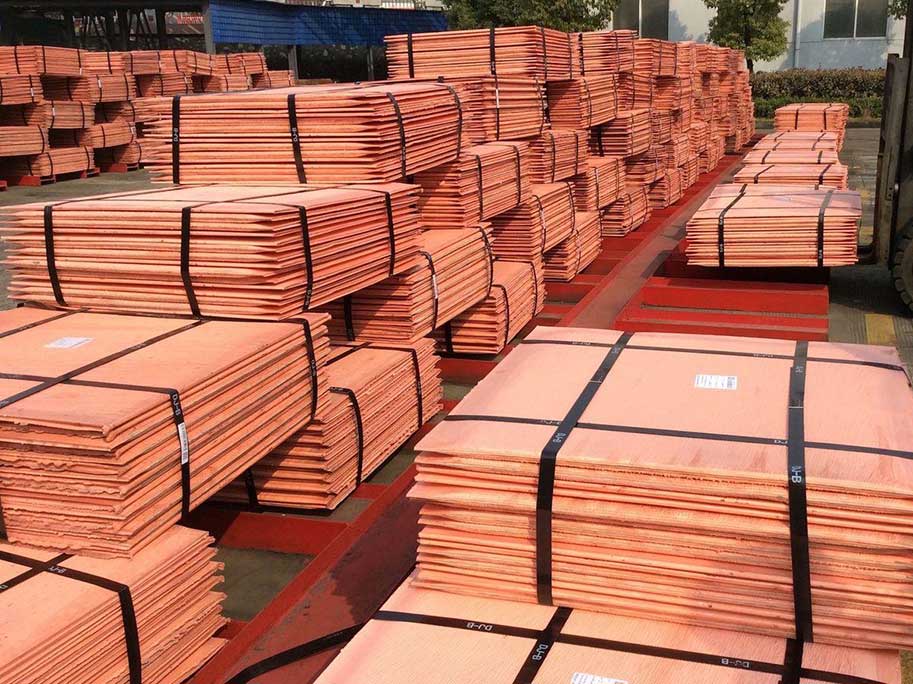
Ivanhoe Electric’s assessment for Santa Cruz project details new source of ‘green’ copper in US www.mining.com
Ivanhoe Electric (TSX: IE) has released the results of an initial assessment (IA) analyzing the potential for an underground copper mine at its Santa Cruz project located west of Casa Grande, Arizona, powered predominantly by renewable energy.
The IA, which is preliminary in nature, envisions a 5.9-million-tonne-per-year copper mining operation with an estimated 20-year life. Life of mine (LOM) copper production is calculated at 1.6 million tonnes with average grade of 1.58% total copper (1 million tonnes will be in the form of 99% pure copper cathode, the rest being copper contained in a 48% copper concentrate).
The study focuses exclusively on the high-grade exotic, oxide and enriched domains of the Santa Cruz and East Ridge deposits, with combined resources of 2.7 million tonnes indicated grading 1.42% total copper and 27.3 million tonnes inferred grading 1.39% total copper.
However, there is potential for resource upgrades from the oxide domains of the Texaco deposit (900,000 tonnes indicated grading 1.05% total copper and 35 million tonnes inferred grading 1.06% total copper), and from the large primary sulfide domains at Santa Cruz (76.2 million tonnes indicated grading 0.88% total copper and 8 million tonnes inferred grading 0.92% total copper).
Copper recoveries of 95.4% are expected to be achieved through a combination of solvent extraction and electrowinning (SX/EW) and conventional froth flotation, as outlined by the IA.
On the project economics side, the IA projects Santa Cruz to have an after-tax net present value of $1.3 billion with an after-tax internal rate of return of 23%, using an 8% discount rate and an LOM copper price of $3.80/lb.
The study also estimates initial project capital expenditures of $1.15 billion and LOM sustaining capital expenditures of $980 million. A three-year construction period is contemplated to develop the underground workings and build the surface processing facilities.
Ivanhoe noted that the IA is designed to minimize environmental impact and minimize surface land disruption. As a result of the small surface footprint required for mining activities, the area expected to be required for the project would cover approximately one-third of the total land package, it says.
As a primarily “green” copper mine operation, the IA base case assumes 70% of the total electric power requirements for the project will be generated by onsite renewable infrastructure, enabling copper production with low carbon dioxide equivalent (CO2e) emissions (0.49 tonnes per tonne of copper produced for Scope 1 and 2 emissions). In comparison, the global mining industry average is approximately 3.9 tonnes of CO2e, Ivanhoe said.
Robert Friedland, executive chairman of Ivanhoe, says completion of the IA for the Santa Cruz copper project is an “important achievement” for the company as it works to advance a new source of responsibly produced ‘green’ copper in the United States.
“Our goal is to develop a modern copper mine that produces copper with among the lowest levels of carbon dioxide output in the industry; a product we think has the potential to attract a premium price in the future,” Friedland said in Wednesday’s news release.
“We believe the Santa Cruz copper project will become an industry-leading example of responsibly produced copper in the United States, and a source of high-quality jobs in Arizona during development and throughout its anticipated long mine life,” CEO Taylor Melvin added.
Shares of Ivanhoe Electric gained 1.1% by 12:50 p.m. EDT, giving the company a market capitalization of C$2.2 billion ($1.6 billion).

President sport complex to be built in Ulaanbaatar www.gogo.mn
On September 1, 2023, a signing ceremony of the cooperation protocol for the implementation of “President sport complex” was held.
E.Zolboo, the Deputy Minister of Construction and Urban Development, signed on behalf of Mongolian party, and Luo Zhaohui, the director of the China International Development Cooperation Agency, signed on behalf of the People's Republic of China.
In the protocol, all issues related to the research, design, construction, management and operation of the "President Sports Complex" project named after the Presidents of the two countries were resolved.
The technical and economic basis of the project, the necessary basic research and design work were carried out by the Ministry of Construction and Urban Development in cooperation with the team of "Architectural Design and Research Institute of Tongji University" of China.
The complex has an area of 58.560 square meters for basketball, volleyball, soccer, swimming, tennis, table tennis, air tennis, squash tennis, boxing, wrestling, rock climbing, fencing, shooting, archery and fitness, yoga, spinning and cycling, a total of 19 types of sports.
The sport complex has an importance that children, youth and citizens can spend their free time properly, and athletes can achieve success in international competitions, Olympics, continental and world competitions.
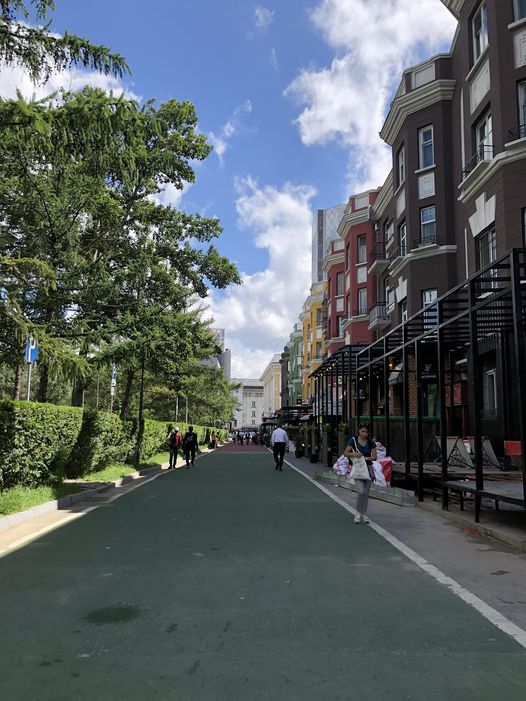
Five public utility works being transferred to the private sector in stages www.gogo.mn
It is planned to reach 70 percent of public utility works and services to be performed by the private sector this year and 100 percent in 2024. In this context, five works are being transferred to the private sector in stages.
Specifically, cleaning, service and waste transportation of roads and streets’ 95, maintenance and protection of green areas’ 99, lighting, maintenance and repair of public roads’ 100, urban landscaping, construction, sidewalk work’s 94, public toilet services’ 84 percent are transferred to the private sector. Three-year contract was signed with enterprises. As a result, the organizations were able to get investment loans, and the conditions for staff to work stably were made.
"Healthy future" campaign to be organized
In order to reduce maternal and child morbidity and mortality, the Health Department of the Capital city is implementing 20 activities in five areas. For example, it has organized training on comprehensive management of children's diseases and specialization in adolescent health. In addition to organizing events such as discussions based on serious cases of maternal mortality, Youth Cabinets were established in the districts. Preparations are being made for the "Healthy Future" campaign in order to expand training and advertising for teenagers, children and youths to prevent smoking and electronic cigarettes.
MEDIA AND PUBLIC RELATIONS DEPARTMENT OF THE GOVERNOR’S OFFICE OF THE CAPITAL CITY
- «
- 1
- 2
- 3
- 4
- 5
- 6
- 7
- 8
- 9
- 10
- 11
- 12
- 13
- 14
- 15
- 16
- 17
- 18
- 19
- 20
- 21
- 22
- 23
- 24
- 25
- 26
- 27
- 28
- 29
- 30
- 31
- 32
- 33
- 34
- 35
- 36
- 37
- 38
- 39
- 40
- 41
- 42
- 43
- 44
- 45
- 46
- 47
- 48
- 49
- 50
- 51
- 52
- 53
- 54
- 55
- 56
- 57
- 58
- 59
- 60
- 61
- 62
- 63
- 64
- 65
- 66
- 67
- 68
- 69
- 70
- 71
- 72
- 73
- 74
- 75
- 76
- 77
- 78
- 79
- 80
- 81
- 82
- 83
- 84
- 85
- 86
- 87
- 88
- 89
- 90
- 91
- 92
- 93
- 94
- 95
- 96
- 97
- 98
- 99
- 100
- 101
- 102
- 103
- 104
- 105
- 106
- 107
- 108
- 109
- 110
- 111
- 112
- 113
- 114
- 115
- 116
- 117
- 118
- 119
- 120
- 121
- 122
- 123
- 124
- 125
- 126
- 127
- 128
- 129
- 130
- 131
- 132
- 133
- 134
- 135
- 136
- 137
- 138
- 139
- 140
- 141
- 142
- 143
- 144
- 145
- 146
- 147
- 148
- 149
- 150
- 151
- 152
- 153
- 154
- 155
- 156
- 157
- 158
- 159
- 160
- 161
- 162
- 163
- 164
- 165
- 166
- 167
- 168
- 169
- 170
- 171
- 172
- 173
- 174
- 175
- 176
- 177
- 178
- 179
- 180
- 181
- 182
- 183
- 184
- 185
- 186
- 187
- 188
- 189
- 190
- 191
- 192
- 193
- 194
- 195
- 196
- 197
- 198
- 199
- 200
- 201
- 202
- 203
- 204
- 205
- 206
- 207
- 208
- 209
- 210
- 211
- 212
- 213
- 214
- 215
- 216
- 217
- 218
- 219
- 220
- 221
- 222
- 223
- 224
- 225
- 226
- 227
- 228
- 229
- 230
- 231
- 232
- 233
- 234
- 235
- 236
- 237
- 238
- 239
- 240
- 241
- 242
- 243
- 244
- 245
- 246
- 247
- 248
- 249
- 250
- 251
- 252
- 253
- 254
- 255
- 256
- 257
- 258
- 259
- 260
- 261
- 262
- 263
- 264
- 265
- 266
- 267
- 268
- 269
- 270
- 271
- 272
- 273
- 274
- 275
- 276
- 277
- 278
- 279
- 280
- 281
- 282
- 283
- 284
- 285
- 286
- 287
- 288
- 289
- 290
- 291
- 292
- 293
- 294
- 295
- 296
- 297
- 298
- 299
- 300
- 301
- 302
- 303
- 304
- 305
- 306
- 307
- 308
- 309
- 310
- 311
- 312
- 313
- 314
- 315
- 316
- 317
- 318
- 319
- 320
- 321
- 322
- 323
- 324
- 325
- 326
- 327
- 328
- 329
- 330
- 331
- 332
- 333
- 334
- 335
- 336
- 337
- 338
- 339
- 340
- 341
- 342
- 343
- 344
- 345
- 346
- 347
- 348
- 349
- 350
- 351
- 352
- 353
- 354
- 355
- 356
- 357
- 358
- 359
- 360
- 361
- 362
- 363
- 364
- 365
- 366
- 367
- 368
- 369
- 370
- 371
- 372
- 373
- 374
- 375
- 376
- 377
- 378
- 379
- 380
- 381
- 382
- 383
- 384
- 385
- 386
- 387
- 388
- 389
- 390
- 391
- 392
- 393
- 394
- 395
- 396
- 397
- 398
- 399
- 400
- 401
- 402
- 403
- 404
- 405
- 406
- 407
- 408
- 409
- 410
- 411
- 412
- 413
- 414
- 415
- 416
- 417
- 418
- 419
- 420
- 421
- 422
- 423
- 424
- 425
- 426
- 427
- 428
- 429
- 430
- 431
- 432
- 433
- 434
- 435
- 436
- 437
- 438
- 439
- 440
- 441
- 442
- 443
- 444
- 445
- 446
- 447
- 448
- 449
- 450
- 451
- 452
- 453
- 454
- 455
- 456
- 457
- 458
- 459
- 460
- 461
- 462
- 463
- 464
- 465
- 466
- 467
- 468
- 469
- 470
- 471
- 472
- 473
- 474
- 475
- 476
- 477
- 478
- 479
- 480
- 481
- 482
- 483
- 484
- 485
- 486
- 487
- 488
- 489
- 490
- 491
- 492
- 493
- 494
- 495
- 496
- 497
- 498
- 499
- 500
- 501
- 502
- 503
- 504
- 505
- 506
- 507
- 508
- 509
- 510
- 511
- 512
- 513
- 514
- 515
- 516
- 517
- 518
- 519
- 520
- 521
- 522
- 523
- 524
- 525
- 526
- 527
- 528
- 529
- 530
- 531
- 532
- 533
- 534
- 535
- 536
- 537
- 538
- 539
- 540
- 541
- 542
- 543
- 544
- 545
- 546
- 547
- 548
- 549
- 550
- 551
- 552
- 553
- 554
- 555
- 556
- 557
- 558
- 559
- 560
- 561
- 562
- 563
- 564
- 565
- 566
- 567
- 568
- 569
- 570
- 571
- 572
- 573
- 574
- 575
- 576
- 577
- 578
- 579
- 580
- 581
- 582
- 583
- 584
- 585
- 586
- 587
- 588
- 589
- 590
- 591
- 592
- 593
- 594
- 595
- 596
- 597
- 598
- 599
- 600
- 601
- 602
- 603
- 604
- 605
- 606
- 607
- 608
- 609
- 610
- 611
- 612
- 613
- 614
- 615
- 616
- 617
- 618
- 619
- 620
- 621
- 622
- 623
- 624
- 625
- 626
- 627
- 628
- 629
- 630
- 631
- 632
- 633
- 634
- 635
- 636
- 637
- 638
- 639
- 640
- 641
- 642
- 643
- 644
- 645
- 646
- 647
- 648
- 649
- 650
- 651
- 652
- 653
- 654
- 655
- 656
- 657
- 658
- 659
- 660
- 661
- 662
- 663
- 664
- 665
- 666
- 667
- 668
- 669
- 670
- 671
- 672
- 673
- 674
- 675
- 676
- 677
- 678
- 679
- 680
- 681
- 682
- 683
- 684
- 685
- 686
- 687
- 688
- 689
- 690
- 691
- 692
- 693
- 694
- 695
- 696
- 697
- 698
- 699
- 700
- 701
- 702
- 703
- 704
- 705
- 706
- 707
- 708
- 709
- 710
- 711
- 712
- 713
- 714
- 715
- 716
- 717
- 718
- 719
- 720
- 721
- 722
- 723
- 724
- 725
- 726
- 727
- 728
- 729
- 730
- 731
- 732
- 733
- 734
- 735
- 736
- 737
- 738
- 739
- 740
- 741
- 742
- 743
- 744
- 745
- 746
- 747
- 748
- 749
- 750
- 751
- 752
- 753
- 754
- 755
- 756
- 757
- 758
- 759
- 760
- 761
- 762
- 763
- 764
- 765
- 766
- 767
- 768
- 769
- 770
- 771
- 772
- 773
- 774
- 775
- 776
- 777
- 778
- 779
- 780
- 781
- 782
- 783
- 784
- 785
- 786
- 787
- 788
- 789
- 790
- 791
- 792
- 793
- 794
- 795
- 796
- 797
- 798
- 799
- 800
- 801
- 802
- 803
- 804
- 805
- 806
- 807
- 808
- 809
- 810
- 811
- 812
- 813
- 814
- 815
- 816
- 817
- 818
- 819
- 820
- 821
- 822
- 823
- 824
- 825
- 826
- 827
- 828
- 829
- 830
- 831
- 832
- 833
- 834
- 835
- 836
- 837
- 838
- 839
- 840
- 841
- 842
- 843
- 844
- 845
- 846
- 847
- 848
- 849
- 850
- 851
- 852
- 853
- 854
- 855
- 856
- 857
- 858
- 859
- 860
- 861
- 862
- 863
- 864
- 865
- 866
- 867
- 868
- 869
- 870
- 871
- 872
- 873
- 874
- 875
- 876
- 877
- 878
- 879
- 880
- 881
- 882
- 883
- 884
- 885
- 886
- 887
- 888
- 889
- 890
- 891
- 892
- 893
- 894
- 895
- 896
- 897
- 898
- 899
- 900
- 901
- 902
- 903
- 904
- 905
- 906
- 907
- 908
- 909
- 910
- 911
- 912
- 913
- 914
- 915
- 916
- 917
- 918
- 919
- 920
- 921
- 922
- 923
- 924
- 925
- 926
- 927
- 928
- 929
- 930
- 931
- 932
- 933
- 934
- 935
- 936
- 937
- 938
- 939
- 940
- 941
- 942
- 943
- 944
- 945
- 946
- 947
- 948
- 949
- 950
- 951
- 952
- 953
- 954
- 955
- 956
- 957
- 958
- 959
- 960
- 961
- 962
- 963
- 964
- 965
- 966
- 967
- 968
- 969
- 970
- 971
- 972
- 973
- 974
- 975
- 976
- 977
- 978
- 979
- 980
- 981
- 982
- 983
- 984
- 985
- 986
- 987
- 988
- 989
- 990
- 991
- 992
- 993
- 994
- 995
- 996
- 997
- 998
- 999
- 1000
- 1001
- 1002
- 1003
- 1004
- 1005
- 1006
- 1007
- 1008
- 1009
- 1010
- 1011
- 1012
- 1013
- 1014
- 1015
- 1016
- 1017
- 1018
- 1019
- 1020
- 1021
- 1022
- 1023
- 1024
- 1025
- 1026
- 1027
- 1028
- 1029
- 1030
- 1031
- 1032
- 1033
- 1034
- 1035
- 1036
- 1037
- 1038
- 1039
- 1040
- 1041
- 1042
- 1043
- 1044
- 1045
- 1046
- 1047
- 1048
- 1049
- 1050
- 1051
- 1052
- 1053
- 1054
- 1055
- 1056
- 1057
- 1058
- 1059
- 1060
- 1061
- 1062
- 1063
- 1064
- 1065
- 1066
- 1067
- 1068
- 1069
- 1070
- 1071
- 1072
- 1073
- 1074
- 1075
- 1076
- 1077
- 1078
- 1079
- 1080
- 1081
- 1082
- 1083
- 1084
- 1085
- 1086
- 1087
- 1088
- 1089
- 1090
- 1091
- 1092
- 1093
- 1094
- 1095
- 1096
- 1097
- 1098
- 1099
- 1100
- 1101
- 1102
- 1103
- 1104
- 1105
- 1106
- 1107
- 1108
- 1109
- 1110
- 1111
- 1112
- 1113
- 1114
- 1115
- 1116
- 1117
- 1118
- 1119
- 1120
- 1121
- 1122
- 1123
- 1124
- 1125
- 1126
- 1127
- 1128
- 1129
- 1130
- 1131
- 1132
- 1133
- 1134
- 1135
- 1136
- 1137
- 1138
- 1139
- 1140
- 1141
- 1142
- 1143
- 1144
- 1145
- 1146
- 1147
- 1148
- 1149
- 1150
- 1151
- 1152
- 1153
- 1154
- 1155
- 1156
- 1157
- 1158
- 1159
- 1160
- 1161
- 1162
- 1163
- 1164
- 1165
- 1166
- 1167
- 1168
- 1169
- 1170
- 1171
- 1172
- 1173
- 1174
- 1175
- 1176
- 1177
- 1178
- 1179
- 1180
- 1181
- 1182
- 1183
- 1184
- 1185
- 1186
- 1187
- 1188
- 1189
- 1190
- 1191
- 1192
- 1193
- 1194
- 1195
- 1196
- 1197
- 1198
- 1199
- 1200
- 1201
- 1202
- 1203
- 1204
- 1205
- 1206
- 1207
- 1208
- 1209
- 1210
- 1211
- 1212
- 1213
- 1214
- 1215
- 1216
- 1217
- 1218
- 1219
- 1220
- 1221
- 1222
- 1223
- 1224
- 1225
- 1226
- 1227
- 1228
- 1229
- 1230
- 1231
- 1232
- 1233
- 1234
- 1235
- 1236
- 1237
- 1238
- 1239
- 1240
- 1241
- 1242
- 1243
- 1244
- 1245
- 1246
- 1247
- 1248
- 1249
- 1250
- 1251
- 1252
- 1253
- 1254
- 1255
- 1256
- 1257
- 1258
- 1259
- 1260
- 1261
- 1262
- 1263
- 1264
- 1265
- 1266
- 1267
- 1268
- 1269
- 1270
- 1271
- 1272
- 1273
- 1274
- 1275
- 1276
- 1277
- 1278
- 1279
- 1280
- 1281
- 1282
- 1283
- 1284
- 1285
- 1286
- 1287
- 1288
- 1289
- 1290
- 1291
- 1292
- 1293
- 1294
- 1295
- 1296
- 1297
- 1298
- 1299
- 1300
- 1301
- 1302
- 1303
- 1304
- 1305
- 1306
- 1307
- 1308
- 1309
- 1310
- 1311
- 1312
- 1313
- 1314
- 1315
- 1316
- 1317
- 1318
- 1319
- 1320
- 1321
- 1322
- 1323
- 1324
- 1325
- 1326
- 1327
- 1328
- 1329
- 1330
- 1331
- 1332
- 1333
- 1334
- 1335
- 1336
- 1337
- 1338
- 1339
- 1340
- 1341
- 1342
- 1343
- 1344
- 1345
- 1346
- 1347
- 1348
- 1349
- 1350
- 1351
- 1352
- 1353
- 1354
- 1355
- 1356
- 1357
- 1358
- 1359
- 1360
- 1361
- 1362
- 1363
- 1364
- 1365
- 1366
- 1367
- 1368
- 1369
- 1370
- 1371
- 1372
- 1373
- 1374
- 1375
- 1376
- 1377
- 1378
- 1379
- 1380
- 1381
- 1382
- 1383
- 1384
- 1385
- 1386
- 1387
- 1388
- 1389
- 1390
- 1391
- 1392
- 1393
- 1394
- 1395
- 1396
- 1397
- 1398
- 1399
- 1400
- 1401
- 1402
- 1403
- 1404
- 1405
- 1406
- 1407
- 1408
- 1409
- 1410
- 1411
- 1412
- 1413
- 1414
- 1415
- 1416
- 1417
- 1418
- 1419
- 1420
- 1421
- 1422
- 1423
- 1424
- 1425
- 1426
- 1427
- 1428
- 1429
- 1430
- 1431
- 1432
- 1433
- 1434
- 1435
- 1436
- 1437
- 1438
- 1439
- 1440
- 1441
- 1442
- 1443
- 1444
- 1445
- 1446
- 1447
- 1448
- 1449
- 1450
- 1451
- 1452
- 1453
- 1454
- 1455
- 1456
- 1457
- 1458
- 1459
- 1460
- 1461
- 1462
- 1463
- 1464
- 1465
- 1466
- 1467
- 1468
- 1469
- 1470
- 1471
- 1472
- 1473
- 1474
- 1475
- 1476
- 1477
- 1478
- 1479
- 1480
- 1481
- 1482
- 1483
- 1484
- 1485
- 1486
- 1487
- 1488
- 1489
- 1490
- 1491
- 1492
- 1493
- 1494
- 1495
- 1496
- 1497
- 1498
- 1499
- 1500
- 1501
- 1502
- 1503
- 1504
- 1505
- 1506
- 1507
- 1508
- 1509
- 1510
- 1511
- 1512
- 1513
- 1514
- 1515
- 1516
- 1517
- 1518
- 1519
- 1520
- 1521
- 1522
- 1523
- 1524
- 1525
- 1526
- 1527
- 1528
- 1529
- 1530
- 1531
- 1532
- 1533
- 1534
- 1535
- 1536
- 1537
- 1538
- 1539
- 1540
- 1541
- 1542
- 1543
- 1544
- 1545
- 1546
- 1547
- 1548
- 1549
- 1550
- 1551
- 1552
- 1553
- 1554
- 1555
- 1556
- 1557
- 1558
- 1559
- 1560
- 1561
- 1562
- 1563
- 1564
- 1565
- 1566
- 1567
- 1568
- 1569
- 1570
- 1571
- 1572
- 1573
- 1574
- 1575
- 1576
- 1577
- 1578
- 1579
- 1580
- 1581
- 1582
- 1583
- 1584
- 1585
- 1586
- 1587
- 1588
- 1589
- 1590
- 1591
- 1592
- 1593
- 1594
- 1595
- 1596
- 1597
- 1598
- 1599
- 1600
- 1601
- 1602
- 1603
- 1604
- 1605
- 1606
- 1607
- 1608
- 1609
- 1610
- 1611
- 1612
- 1613
- 1614
- 1615
- 1616
- 1617
- 1618
- 1619
- 1620
- 1621
- 1622
- 1623
- 1624
- 1625
- 1626
- 1627
- 1628
- 1629
- 1630
- 1631
- 1632
- 1633
- 1634
- 1635
- 1636
- 1637
- 1638
- 1639
- 1640
- 1641
- 1642
- 1643
- 1644
- 1645
- 1646
- 1647
- 1648
- 1649
- 1650
- 1651
- 1652
- 1653
- 1654
- 1655
- 1656
- 1657
- 1658
- 1659
- 1660
- 1661
- 1662
- 1663
- 1664
- 1665
- 1666
- 1667
- 1668
- 1669
- 1670
- 1671
- 1672
- 1673
- 1674
- 1675
- 1676
- 1677
- 1678
- 1679
- 1680
- 1681
- 1682
- 1683
- 1684
- 1685
- 1686
- 1687
- 1688
- 1689
- 1690
- 1691
- 1692
- 1693
- 1694
- 1695
- 1696
- 1697
- 1698
- 1699
- 1700
- 1701
- 1702
- 1703
- 1704
- 1705
- 1706
- 1707
- 1708
- 1709
- 1710
- 1711
- 1712
- 1713
- 1714
- 1715
- 1716
- »






